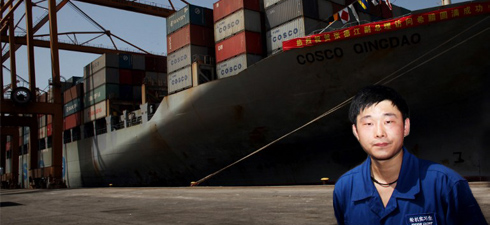PIRAEUS, Greece — The captain gazed from his elegant office overlooking this port on the Aegean Sea and smiled as towering cranes plucked container after container from a giant ship while robotic transport vehicles fanned out to transfer the cargo to smaller vessels bound for the Mediterranean.
The cargo volume here is three times the level it was two years ago, before the captain, Fu Cheng Qiu, was put in charge by his employer, Cosco, a global shipping giant owned by the Chinese government.
In a 2010 deal that put 500 million euros ($647 million) into the coffers of Greece’s cash-starved government, Cosco leased half of the port of Piraeus and quickly converted a business that had languished as a Greek state-run enterprise into a hotbed of productivity.
The other half of the port is still run by Greece. And the fact that its business lags behind Cosco’s is emblematic of the entrenched labor rules and relatively high wages — for those lucky enough to still have jobs — that have stifled the country’s economic growth.
“Everyone here knows that you must be hard-working,” said Captain Fu, under whose watch the Chinese-run side of the port has lured new clients, high-volume traffic and bigger ships.
In many ways, the top-to-bottom overhaul that Cosco is imposing on Piraeus is what Greece as a whole must aspire to if it is ever to restore competitiveness to its recession-sapped economy, make a dent in its 24 percent unemployment rate and avoid being dependent on its European neighbors for years to come.
As the Greek government contemplates shedding state-owned assets to help pay down staggering debts, it might be tempting to consider leasing or even selling the rest of the port to China. But if the Cosco example is representative, the trade-offs — mainly a sharp reduction in labor costs and job protection rules — might be ones many Greeks would be loath to accept.
Was this article useful? If so we are delighted!
It is freely available because we believe that the right to free and independent information is essential for democracy. But this right is not guaranteed forever, and independence comes at a cost. We need your support in order to continue publishing independent, multilingual news for all Europeans.
Discover our subscription offers and their exclusive benefits and become a member of our community now!












